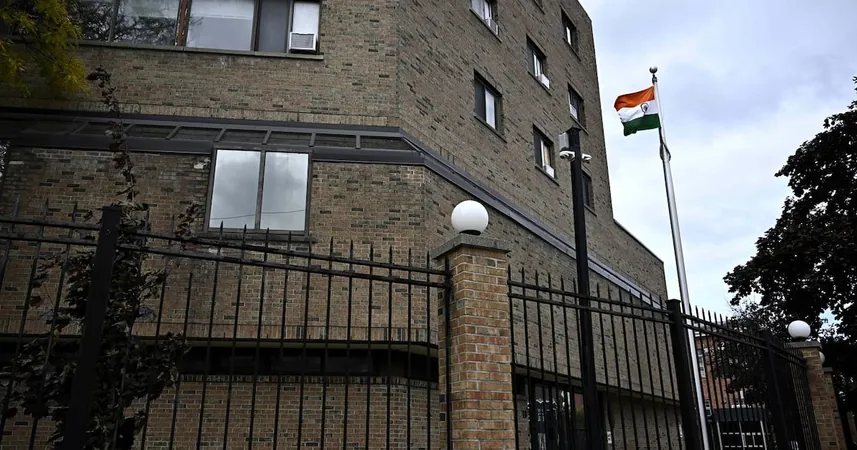
Shocking Study Reveals Maternal Hidradenitis Suppurativa Could Spell Disaster for Mother and Child!
2024-11-04
Author: Jacques
Introduction
Recent shocking findings from a comprehensive study suggest that maternal hidradenitis suppurativa (HS) significantly raises the stakes for both pregnancy complications and negative outcomes for mothers and their newborns. Conducted on over 1 million hospital deliveries in Quebec, Canada, this extensive research highlights a critical health concern that has flown under the radar for far too long.
What is Hidradenitis Suppurativa?
Hidradenitis suppurativa is a chronic inflammatory skin condition that primarily affects women, usually surfacing between the ages of 21 and 29. The painful lesions it creates can lead to not just physical suffering but also profound emotional distress due to malodor, drainage, and associated scarring. Alarmingly, the onset of HS often undergoes delays in diagnosis, complicating the situation further.
Study Overview
The study, spearheaded by researchers including medical student Kaiyang Li from McGill University, sought to clarify the implications of HS during and after pregnancy. Investigators conducted an in-depth analysis using the Maintenance and Use of Data for the Study of Hospital Clientele registry, capturing a staggering 98% of births in Quebec from April 2006 to March 2022.
Key Findings
Among the 1,324,488 deliveries assessed, only 1,332 (0.1%) were from mothers diagnosed with HS, yet these mothers exhibited a starkly increased risk profile. Researchers found they were more likely to be younger, have other health comorbidities, and face socioeconomic disadvantages compared to their counterparts without HS.
Risks to Mothers
The statistics are eye-opening. Mothers with HS faced a 55% greater risk of hypertensive disorders during pregnancy and a 61% chance of developing gestational diabetes. Risks of severe maternal morbidity increased by 38%, and the likelihood of cesarean delivery soared, alongside rates of postpartum hemorrhage and peripartum sepsis, which were 1.49 and 2.71 times higher respectively.
Risks to Newborns
But it doesn’t stop there—newborns of mothers with HS are similarly at risk. The study noted a 28% increased likelihood of preterm birth and a 29% chance of birth defects, with alarming associations particularly noted with congenital heart defects and orofacial clefts.
Long-term Impacts
Long after the birth, the fallout appears to persist: mothers with HS are 2.29 times more likely to face hospitalization later in life, while their children have a 31% increased risk of hospital admission for various health issues, including respiratory and psychiatric disorders.
Study Limitations
While this groundbreaking study underlines alarming implications for maternal and neonatal health, the authors also recognized several limitations, noting factors like coding errors and potential nondifferential misclassification that could affect the outcomes.
Conclusion
In light of these findings, the researchers advocate for heightened monitoring of pregnant individuals with HS and vigilant follow-up for their children. Clinicians, take note—this could change the game in prenatal care! As the impacts of HS unfold, it’s clear that more awareness and research are urgently needed to safeguard the health of mothers and their children throughout their lifelong journeys.
Stay Tuned!
Stay tuned for more updates on this crucial health topic!









 Brasil (PT)
Brasil (PT)
 Canada (EN)
Canada (EN)
 Chile (ES)
Chile (ES)
 España (ES)
España (ES)
 France (FR)
France (FR)
 Hong Kong (EN)
Hong Kong (EN)
 Italia (IT)
Italia (IT)
 日本 (JA)
日本 (JA)
 Magyarország (HU)
Magyarország (HU)
 Norge (NO)
Norge (NO)
 Polska (PL)
Polska (PL)
 Schweiz (DE)
Schweiz (DE)
 Singapore (EN)
Singapore (EN)
 Sverige (SV)
Sverige (SV)
 Suomi (FI)
Suomi (FI)
 Türkiye (TR)
Türkiye (TR)